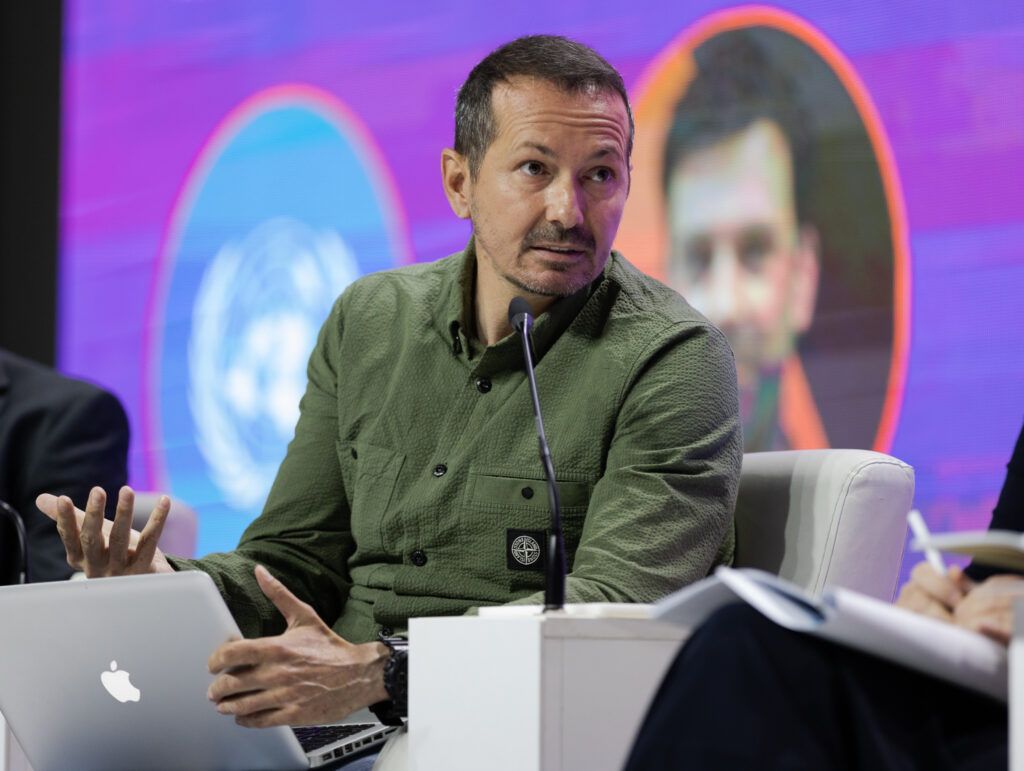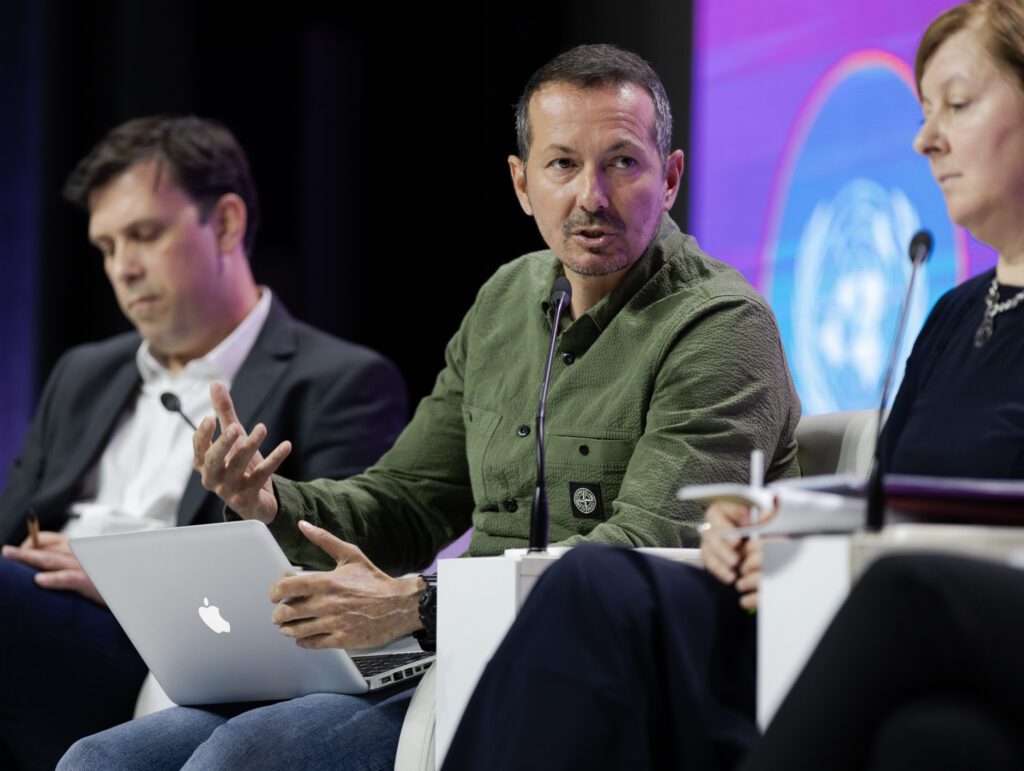Rade Djuric is an expert in the field of budget spending, anti-corruption and media. He has been part of the Independent Association of Journalists since 2020. In his 16-year-long career, Djuric was an associate of Transparency International, Transparency Serbia, GIZ, OSCE and other international organizations. Today, he is a member of the Permanent Working Group for the Safety of Journalists and the Working Group for the Development of a Platform for Recording Threats and Pressures. Within the questions below, he explains the media situation in Serbia and the challenges Serbian journalists face nowadays.

Author: Martin Nikolovski / Photo: Vanja Čerimagić
According to the Reporters Without Borders’ World Press Freedom Index, Serbia ranks 93rd in the world in terms of media freedom in 2021 and 79th in 2022. What is the current situation in Serbia, and is there any freedom in the media?
As the results show, Serbia is not very well positioned regarding media freedom and freedom of expression. The reasons for such a position are obvious, despite the fact that the government officials of the Republic of Serbia, the Ministry of Interior, and the public prosecutor are saying that we have a lesser number of attacks. The biggest problem is, actually, that there are very highly polarized media in Serbia. On the one side, you have pro-government media. That would be the public broadcaster in Serbia that is actually not criticizing the decisions of the government officials. On the other side, we have strong independent media that are actually criticizing them, telling some specific things regarding the decisions of the government’s officials and also, they are receiving a lot of threats, a lot of pressure and even physical attacks.
What institutional mechanisms exist to protect journalists in Serbia, and how functional are they?
In Serbia, I think we are very well positioned regarding the specific mechanisms. I think we are maybe the number one in Europe regarding special strategic mechanisms related to the safety of the journalists. Within this, we have three different working groups working on the safety of the journalists. One group, that my association is working mostly with, is connected with the public prosecutors, the Ministry of Interior, and the police officers. Here, we created some specific contact points which are dealing with investigations and can react if they see that some specific investigation by public prosecutors is not going very well. On the paper, we have an excellent system, but in practice, it is not as functional as we actually want. So, in theory, it functions well, but in reality, it’s not very good.

What are your recommendations for the protection of journalists in Serbia?
First of all, we have a problem with the lack of political will. In most cases, the highly ranked government officials are the initiators of the crises and potential attacks, especially on independent journalists from investigating websites. So, the first thing would be that government officials condemn the attacks. They need to say that these kinds of threats are not allowed, they need to push for protection and maybe push for more freedom for public prosecutors or police officers to work on or deal with those cases. That will be the biggest thing. The second thing would be less criticism about the independent media, especially investigating journalists working with specific stories from public procurement to other public interests, such as financing of political parties.
Do people in Serbia believe in the media and how much does the lack of trust affect the safety of journalists in Serbia?
In my personal opinion, people actually have faith in the media. You can see by their reactions. Especially in pro-government media, you can see that everything that the PM or the President says, they believe in it, and they are using it the next day to create negative comments or online threats or put online pressure on someone with a different opinion. Not only online, but every kind of pressure. They are reporting things like you, the ones who disagree are the enemies of the state. You are attacking our president, and our president said that you are being paid from foreign embassies, from foreign payers.
How to fight against discrediting campaigns against journalists, which are strongly represented in Serbia?
We would need more condemnation. Also, we need some open televisions which will broadcast all over Serbia. They need to have free voices that almost every citizen can hear and then choose what to believe in. We need this because they, the citizens, have a huge kind of misunderstanding of what actually happens, what investigative journalists, for example, work on, and are they really an enemy or not. On the other side, I think rules should be very important. It’s important to use UN mechanisms, human rights protection mechanisms and especially to connect with other organizations in the neighborhood in Europe. This could support investigative journalists and explain to the government officials that it is not okay to say something they say because of huge consequences for journalists.